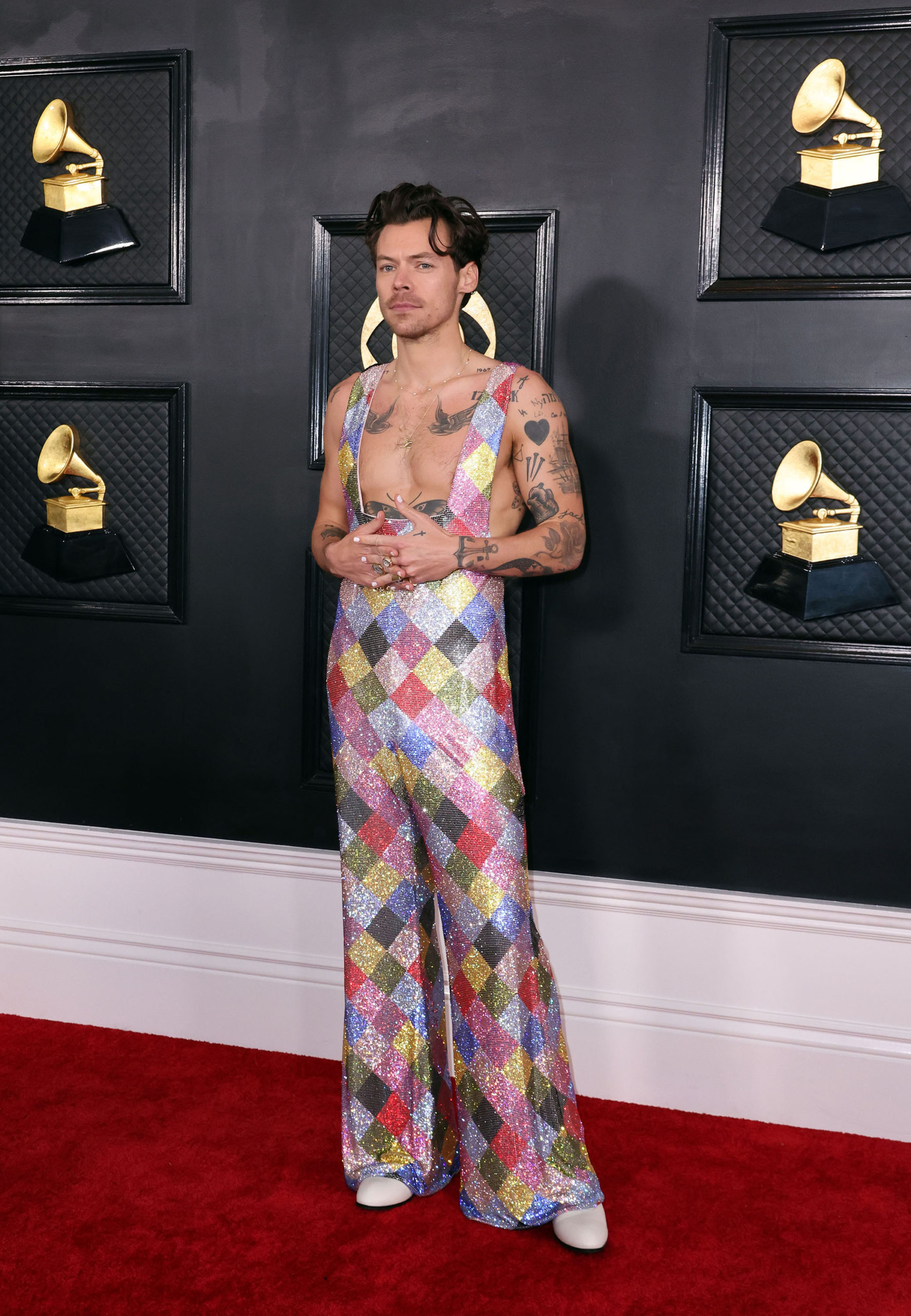Harry Styles at the 2023 Grammys Tribune Content Agency
Now that nominations have been released for the 2024 Grammys, I think it’s time to reconsider our obsession with the Awards Season spectacle.
Each year, most of us wait with bated breath to see if our favorite celebrities have secured a nomination for a coveted award, whether it be an Emmy, Grammy, Oscar, Tony, or even a VMA.
As a result, most of us flock to social media to complain about disappointing nominees.
One of the sorest subjects for music fans is the infamous Grammy “snub,” where an artist either loses an award they’re generally perceived to be deserving of or they miss out on a nomination entirely.
This year has been a big one for snubs. My texts have been flooded with outrage over the lack of acknowledgement for critically acclaimed artists like Hozier and Mitski, both of whom received zero nominations this year.
Phenomenal performers like Reneé Rapp and Sabrina Carpenter were left off the nominee list for Best New Artist, and Noah Kahan’s massively successful “Stick Season” received no nods for Album of the Year, Best Americana Album, or performance-specific awards.
Snubs, however, are one of the tamest issues with the Grammys.
Though many of the “big four” awards (Album of the Year, Record of the Year, Song of the Year, and Best New Artist) are dominated by female nominees this year, the Grammys has a notorious history of prejudice against female, queer, and BIPOC artists.
This is not to say that only straight white men win Grammys, but many demographics are not given the proper representation or acclaim during Awards Season.
Although, even when artists from marginalized groups earn nominations, bias still runs rampant.
We all remember Drake’s hit song “Hotline Bling.” It was a pop and R&B earworm for the ages. So how and why did it win Best Rap Song in 2017?
Adele beat out Beyoncé’s “Lemonade” the same year, a decision that the British singer herself found upsetting. In her acceptance speech, Adele called Beyoncé’s album “monumental” and flat-out admitted that her own “25” should not have won the AOTY trophy.
But why do we put so much weight into awards, anyway? If an institution like the Grammys constantly overlooks talent and disproportionately rewards mediocre artists just because they have commercial success, why do we still view it with any form of integrity?
Furthermore, why have we come to equate accomplishment with physical accolades?
Some of my favorite artists will almost certainly never win a Grammy, but that doesn’t make them any less talented to me. It would be nice to see an underrated artist be shown some love on national television, but that doesn’t determine whether or not the artist retains their fan base.
Nobody likes popularity contests in real life, so why should we continue tuning in every year to award shows that typically care more about whether an artist hit the Top 40 than if they deserve recognition?
It’s not as if the Grammys are known for their transparency, either. Do you know who nominates artists? Do you know who decides the winner? Compare it to the Oscars where every acceptance speech seems to show gratitude to “the Academy”; who or what even is that?
Still, I understand why so many of us love watching award shows every year.
The Grammys are a complicated institution, but they wouldn’t be so popular if they didn’t accomplish some good. The average viewer has a lot to enjoy if they turn on CBS during Awards Season.
It’s a small way to inspire excitement on an otherwise dull evening. It allows the audience to stay up-to-date with pop culture and see the biggest names celebrate wins or nurse losses. To top it all off, there’s the red carpet.
Not only can you “ooh” and “ahh” at the ornate outfits, but there are pre-show and post-show interviews that offer endless entertaining soundbites. Plus, I know I’m not the only one who tried to replicate that red carpet strut in my bedroom as a pre-teen.
I would even go so far as to say that the idea of the Grammys isn’t inherently bad. Music is such an important industry, and performers deserve to be celebrated for their achievements.
I’m also not arguing that the Grammys should start handing out participation trophies or leave the decision making process in the hands of the general public.
However, it’s important to note that these awards can be arbitrary and we cannot judge a person’s talent based on their prize collection.
So, should you bother watching the 2024 Grammys?
It’s ultimately up to you, but I beg that you be aware of hidden agendas in awards and be able to remove your personal feelings from the fight for equitable consideration.

